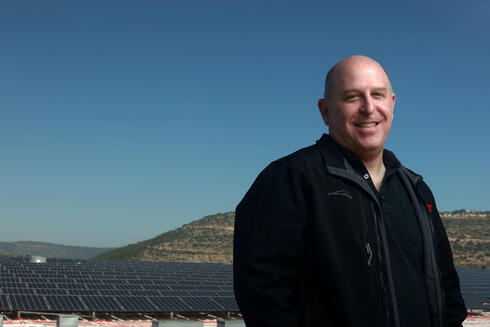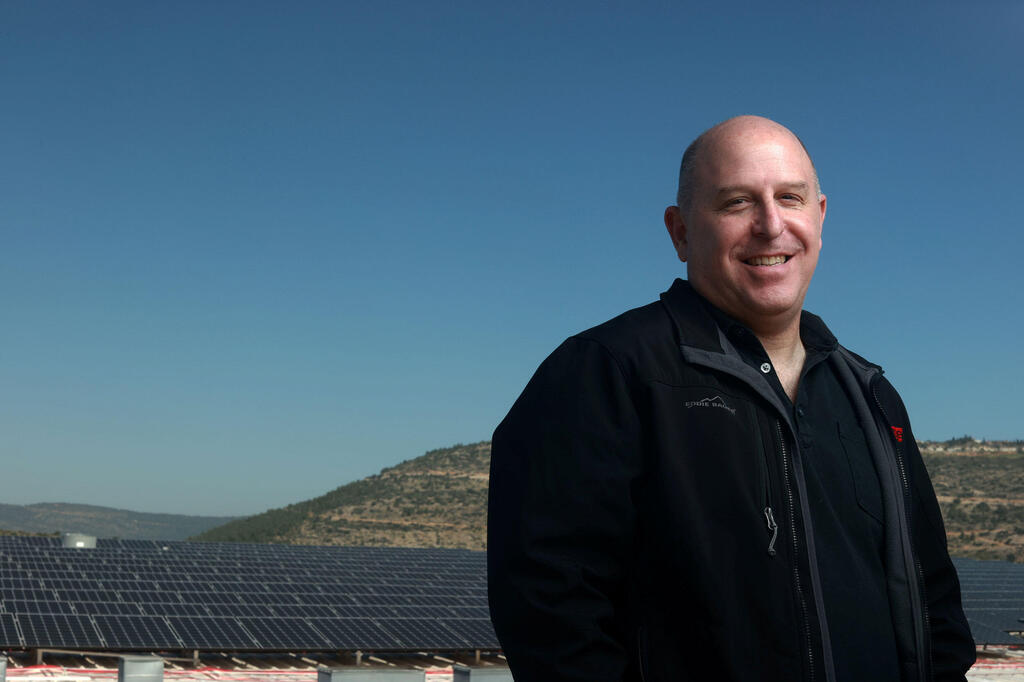
Power failure: Why did SolarEdge’s value plummet by $11 billion in a year?
The renewable energy company, the first Israeli company to enter the S&P 500 index, traded at its peak with a value of $20 billion. Since the beginning of the year, however, the stock has fallen by 43% while the S&P 500 has risen by 18%
Almost two years ago, the renewable energy company SolarEdge made history when it became the first Israeli company to be included in the prestigious S&P 500 index, which includes the largest companies traded in the U.S.
The company was issued on Nasdaq in 2015 at a value of $620 million, and before entering the S&P 500 index, in August 2021, it was traded at a value of $19 billion. It peaked a year later, in August 2022, when it reached a market cap of $20 billion. However, since the beginning of 2023, the company's stock has fallen by approximately 43%, while the S&P 500 index has risen by 18%.
As a result, SolarEdge shares are in fourth place in the list of the worst performers in the index this year. SolarEdge went from being the largest Israeli company on the Nasdaq to the sixth largest. Its market value today, $9.1 billion, places it in 470th place in the index. In other words, it has written off about $11 billion dollars (more than NIS 40 billion) from its value. For comparison, the value lost by SolarEdge is equal to the current market cap of Bank Hapoalim, the second largest bank in Israel.
SolarEdge develops and produces direct current converters from solar panels to alternating current, which makes it possible to significantly increase the efficiency of solar panels. The company also deals in the sale of solar systems and storage systems.
SolarEdge was founded in 2006 by five former members of the Intelligence Corps' technology unit: Guy Sella, Lior Handelsman, Yoav Galin, Meir Adest and Amir Fishelov. The company is headed by CEO Zvi Lando and chairman Nadav Zafrir, former commander of Unit 8200. SolarEdge's main shareholders are large investment entities, including Blackrock and JP Morgan.
SolarEdge is not alone. Its major competitor, the American company Enphase is doing even worse. Enphase has fallen by 52% since the beginning of the year and is the company showing the second highest decline in the index. However, Enphase's market value is higher at $17 billion.
The main decline in the SolarEdge stock during 2023 was at the beginning of August, with the publication of the company's financial reports for the second quarter, which presented record results but were accompanied by a decline in the sales forecast for the third quarter of the year. In the following days, the stock fell by about 20%.
SolarEdge's revenues in the second quarter of 2023 amounted to $991 million, a 36% jump compared to the same period last year. In the solar sector, revenues amounted to $947 million, 38% more than the corresponding period last year. To this must be added the increase in sales to the European market which was manifested, among other things, in a 64% jump in sales in Germany. The good results led the company to beat analysts' forecasts with earnings per share of $2.62 compared to an estimate of $2.52.
But the forecasts for the third quarter were less positive. The company reported revenue projections of only between $880 and $920 million in the quarter compared to revenue estimates of $1.05 billion in the previous forecast. Against this background, Bank of America's analysts lowered the buy recommendation on the stock (from buy to neutral). The analysts emphasized that the company's strategy is correct and its activities are diversified, but it is a market suffering from a sharp drop in demand.
The sharp decline in the value of SolarEdge is due to several reasons: First, a decrease in demand in the U.S. for solar systems due to the increase in interest rates that mainly affects the U.S.market and a taxation program in California, which reduced the economic viability of erecting solar panels without energy storage on the roofs of houses in California. The new regulations led to a 75% decrease in the income of private households from solar panels that will be installed without electricity storage facilities. The decrease in the profitability of installing home systems in California has led to a decrease in demand. California is an important market for SolarEdge since about 10% of the company's operations are concentrated in that state.
In addition, the interest rate hikes in the U.S. in the last year resulted in the rise of the cost of setting up solar projects on private roofs. In the U.S., it is customary to finance the installation of solar panels by taking out loans from financial institutions, but the rise of the interest rate from zero to a level of more than 5%, made financing more expensive and thus led to a decrease in demand.
The third factor is the drop in electricity prices in Europe during 2023 compared to the unprecedented highs reached on the continent with the outbreak of the war in Ukraine, which increased the value and revenues of solar projects by tens of percent. During 2023, fuel prices in the world and on the continent balanced out, and many countries such as Spain and Poland began restrictions on the prices of electricity produced from solar energy. The reason for the restrictions was that electricity prices on the continent increased due to the increase in fuel prices, but these do not affect the electricity production costs of the renewable energies, which led to high profit rates for the projects.
The uncertainty that accompanied the global energy market and the fear of a reduction in the supply of fuels from Russia led to many orders of the company's products to Europe last year. Now, according to the company, there is saturation in the European markets, so the amount of new orders has decreased.














